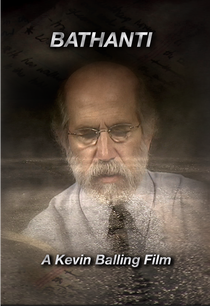This evening, I’ll be delivering a talk called “My Black Mountain College” at the inaugural UNC-Asheville Arts Fest.
I’m tempted to say that North Carolinians need no introduction to Black Mountain College – since that anomaly in American education occurred during the Depression just outside the little town of Black Mountain – but even on its native soil this miraculous, though rather short-lived venture, still remains a bit of a well-kept secret. Investigation into Black Mountain leads one down a prodigious rabbit hole. To quote Frost, “way leads onto way” in exponential fashion once you enter that portal. You will find yourself in a most seductive labyrinth.

John Andrew Rice (sitting)
There’s no easy way to synopsize or spin Black Mountain College, but here’s a thumbnail: In 1933, a band of disgruntled academic dissidents from Rollins College in Florida, led by John Andrew Rice, founded Black Mountain College in North Carolina’s very rural Swannanoa Valley in Buncombe County. Black Mountain College closed its doors in 1957, yet to this day remains the greatest experimental academic adventure ever launched on

Merce Cunningham dance class, 1948
American soil. During its shimmering stormy history, many of the world’s greatest thinkers and artists were in residence or paid visits at Black Mountain. The following is a but a very short list: Albert Einstein, Josef Albers, Ruth Asawa, John Cage, Harry Callahan, Merce

Zora Neale Hurston
Cunningham, Robert Creeley, John Dewey, Robert Duncan, Aldous Huxley, Willem de Kooning, Buckminster Fuller, Walter Gropius, Langston Hughes, Alfred Kazin, Zora Neale Hurston, Franz Kline, Jacob Lawrence, Henry Miller, Robert Motherwell, Charles Olson, Arthur Penn, Francine du Plessix-Gray, Robert Rauschenburg, Ben Shahn, Aaron Siskind, Thornton Wilder and, to reiterate, countless others. As Martin Duberman points out in his dazzling history, Black Mountain: An Exploration in

Jonathan Williams
Community: “It was the forerunner and exemplar of much that is currently considered innovative in art, education and lifestyle.”
I briefly touch on Black Mountain College in my very first blog entry, on April 1, so I would direct you to that entry. Nevertheless, it’s worth noting here that two of those seminal Black Mountain College poets mentioned, in particular, have deep North Carolina ties. One is Jonathan Williams, born in Asheville. Here’s one of his poems.

Paul Carroll (left) with Allen Ginsberg
Another is Paul Carroll who lived with his wife, Maryrose Carroll, for years on a farm with horses out in the Bethel community, west of Boone, just before Watauga County becomes Avery County, and then curves into Tennessee. Maryrose, a renowned visual artist, still lives there. Paul Carroll rests in the columbarium at Saint Elizabeth’s of the Hill Country Catholic Church in Boone. He is also an acknowledged, major figure in the avant-garde movement of poetry in the mid-twentieth century. He founded the Poetry Center of Chicago, and was the poetry editor of Chicago Review and also of Big Table. Here’s an interesting post on Carroll, replete with his lovely poem, “Song after Making Love,” titled “Writers No One Reads.” I read Carroll and I encourage you to do the same. Appalachian State University’s Special Collections in the Belk Library houses the fascinating Paul and Maryrose Carroll Beat Collection.
Troves of Black Mountain College lore, scholarship and memorabilia abound in North Carolina and beyond, but here are a few sites to get you started:
The Asheville Art Museum.
The truly amazing Black Mountain College Museum and Arts Center.
There’s also The Journal of Black Mountain College Studies.

Mary Emma Harris
Mary Emma Harris – born in Kinston, North Carolina in Lenoir County and an alumna of Greensboro College and UNC-Chapel Hill – is the most prominent scholar of Black Mountain College in the United States and beyond. Her 1987 watershed The Arts at Black Mountain College is – along with Martin Duberman’s 1972 Black Mountain: An Exploration in Community – the most indisputably influential publication on the history of Black Mountain College. Mary Emma’s Black Mountain College Project is a tour de force.

Robert Creeley
In the interest of jazz, let me share this very short interview that Jazz Times conducted back in 2001 with Robert Creeley, the renowned and canonical Black Mountain poet, the great American poet – not only a jazz aficionado, but also a poet who listened to jazz as he composed his verse. “I Know a Man” might be my favorite Creeley poem. Here’s another (visual) take on it.
To invoke Black Mountain College and Baseball (the official beloved game at the Lake Eden campus of the College),

Paul Blackburn
here’s a baseball poem by Paul Blackburn, another Black Mountain poet, about the greatest World Series game of all time.
Finally, if you have the stamina, here’s an essay of mine called “The Mythic School of the Mountain: Black Mountain College.” It might add a little context, a little backdrop, for the above collage.


